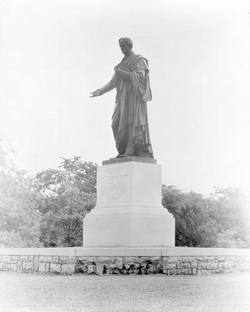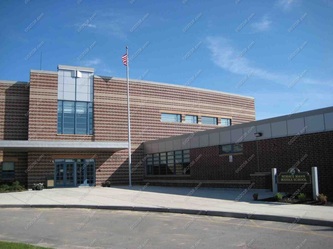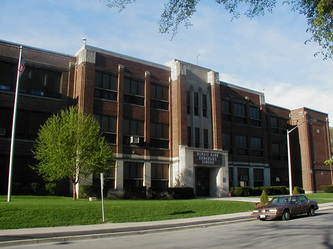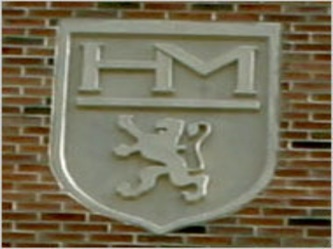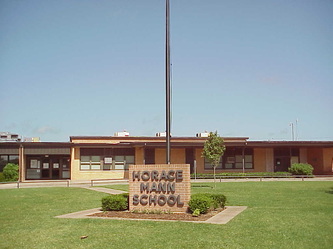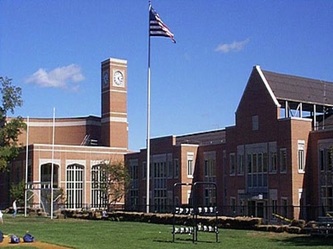Social Reforms of America: Early to Mid 19th Century
Horace Mann- The Father of American Public Education
"A human being is not attaining his full heights until he is educated." -Horace Mann
Horace Mann is the American Dream. Being born into poverty didn't stop him from seeking success. He educated himself in a tiny hometown library and later graduated from Brown University with highest honors. Among his many successes, he is most known for his educational reforms that shaped American education into the way it is today. He is the epiphany of the hard work and perseverance deeply rooted in the American identity.
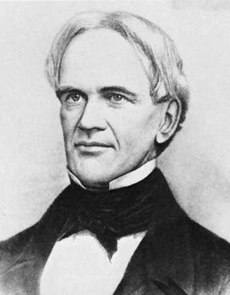
Accomplishments
Contributions to the Education Reform
Horace Mann devoted himself to being the secretary of the Massachusetts State Board of Education. He frequently held teachers' conventions, introduced numerous reforms, and delivered numerous lectures and addresses. In 1843, he traveled to Europe to inspect its schools and educational systems. He recorded his observations in his annual report, which was later published in America and in England. In 1852, he supported the decision to adopt the Prussian education system in Massachusetts, which later became America's common school system (visit "Common School System" page to learn about the characteristics of the common school system.) Mann also increased teacher pay, extended the school day, as well as the school year, and attempted to provide teachers and students with better-equipped classrooms.
Mann hoped to promote equality by providing a common learning experience for everyone, not just the wealthy children. He advocated raising taxes to fund public schools. Not only did he want children to learn grammar and math, he also stressed the importance of moral education. He suggested that schools should help students who didn't receive proper disciplinary lessons at home. Teaching students how to obey the authority and be prompt for their classes would help them in their careers in the future.
"Character is what God and the angels know of us; reputation is what men and women think of us." -Horace Mann
Like any reformer, Mann faced severe opposition. Parents didn't want to entrust schools with the job of giving their children moral education. Citizens with no children or whose children went to private schools didn't want to pay more taxes to fund public schools. Religious teachers were unhappy about the secular learning environment Mann set up. Many schoolmasters disapproved of his pedagogical theories and innovations. Mann reacted violently and emotionally to his attackers, but he never wavered in his beliefs and saw through all the reforms he started.
*Trivia- Horace Mann is the brother-in-law of Nathaniel Hawthorne.*
- University: Brown University (1819)
- Administrator: President, Antioch College (1852-59)
- US Congressman, Massachusetts 8th (3-Apr-1848 to 3-Mar-1853)
- Board of Education Secretary, MA State Board of Education (1837-48)
- Massachusetts State Senate (1833-37, as President, 1935-37)
- Massachusetts State House of Representatives (1827-33)
Contributions to the Education Reform
Horace Mann devoted himself to being the secretary of the Massachusetts State Board of Education. He frequently held teachers' conventions, introduced numerous reforms, and delivered numerous lectures and addresses. In 1843, he traveled to Europe to inspect its schools and educational systems. He recorded his observations in his annual report, which was later published in America and in England. In 1852, he supported the decision to adopt the Prussian education system in Massachusetts, which later became America's common school system (visit "Common School System" page to learn about the characteristics of the common school system.) Mann also increased teacher pay, extended the school day, as well as the school year, and attempted to provide teachers and students with better-equipped classrooms.
Mann hoped to promote equality by providing a common learning experience for everyone, not just the wealthy children. He advocated raising taxes to fund public schools. Not only did he want children to learn grammar and math, he also stressed the importance of moral education. He suggested that schools should help students who didn't receive proper disciplinary lessons at home. Teaching students how to obey the authority and be prompt for their classes would help them in their careers in the future.
"Character is what God and the angels know of us; reputation is what men and women think of us." -Horace Mann
Like any reformer, Mann faced severe opposition. Parents didn't want to entrust schools with the job of giving their children moral education. Citizens with no children or whose children went to private schools didn't want to pay more taxes to fund public schools. Religious teachers were unhappy about the secular learning environment Mann set up. Many schoolmasters disapproved of his pedagogical theories and innovations. Mann reacted violently and emotionally to his attackers, but he never wavered in his beliefs and saw through all the reforms he started.
*Trivia- Horace Mann is the brother-in-law of Nathaniel Hawthorne.*
Today, many schools in America are built in his name. As of 2002, more than 70 schools have been named after him across 23 states. These schools span from Pre-K to college preparatory levels.
